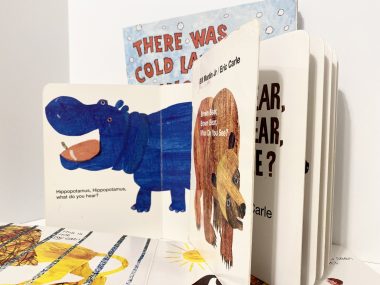Repetition That Leads to Results Instead of Insanity
Written by |

Practice makes progress. That is why we use repetition so much with my 12-year-old Angel, Juliana. It certainly plays a big part in practicing emerging skills like dressing, toileting, and even cooking.
But sometimes I forget that repetition is just as important for educational goals. Juliana’s former teacher reminded me of this, and it surfaced when we were knee-deep in digital learning because of COVID-19.
Didn’t we read this already?
During the video lessons, Juliana’s teacher would read a story and then ask a series of questions. Juliana could answer the questions by choosing the right symbol. At one point, I noticed that we were reading the same story over and over again.
We were watching recorded lessons, so I thought I was choosing the wrong one. But I was also impressed that Juliana could answer so many of the questions correctly. I would discover why later. When I met with Juliana’s teacher, she explained that it was not a mistake; she was intentionally repeating the stories and skills. The repetition helped Juliana connect to the story.
Yes, I had a bit of a lightbulb moment. I needed the reminder that repetition is just as important for Juliana’s educational goals.
Her teacher’s reminder also echoed the suggestions from the Comprehensive Angelman Syndrome Clinic. Back in 2013, my family visited this AS clinic in Chapel Hill, North Carolina. The visit was amazing. Our time there included assessments with various specialists, with evaluations compiled to make a learning plan for Juliana. One suggestion was the use of repetition.
The evaluation highlighted books like “Brown Bear, Brown Bear, What Do You See?” by Bill Martin Jr. After the visit, I made sure that we had plenty of books with repetitive language.

Books with repeating lines and themes help Juliana learn through repetition. (Photo by Sabrina L. Johnson)
Not insanity after all
Repeating the same material might get stale, but it’s effective. For years, we’ve been using the same book for Juliana to practice her body parts. Juliana’s practice time is her homework. We generally do homework twice a week, and it doesn’t take very long. But that little time spent on homework really adds up.
Lately, we’ve been reading the body parts book a lot. This is a big focus as Juliana becomes more skilled with her talker. She uses her iPad for Augmentative and Alternative Communication, or AAC. Juliana is doing great with her talker and is using it to say some important things. However, she needs to get better at identifying her body parts. If she’s pointing to the right place, it will be so much easier to help her when she is sick. So week after week, we read the same book on body parts.
A famous quote states, “Insanity is doing the same thing over and over again and expecting different results.” That doesn’t apply in my world. To help Juliana learn, we must do the same thing over and over again. There’s no insanity here. Because every time we do the same thing, our results will keep getting better.
Note: Angelman Syndrome News is strictly a news and information website about the disease. It does not provide medical advice, diagnosis, or treatment. This content is not intended to be a substitute for professional medical advice, diagnosis, or treatment. Always seek the advice of your physician or other qualified health provider with any questions you may have regarding a medical condition. Never disregard professional medical advice or delay in seeking it because of something you have read on this website. The opinions expressed in this column are not those of Angelman Syndrome News or its parent company, Bionews, and are intended to spark discussion about issues pertaining to Angelman syndrome.





Tamara Guilday
So insightful and again, well-written, Sabrina!
Sabrina L. Johnson
Thank you, Tam! What would I do without your support?